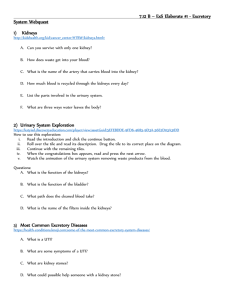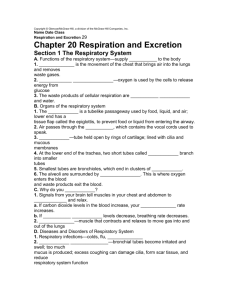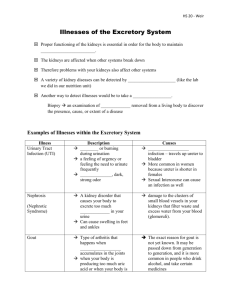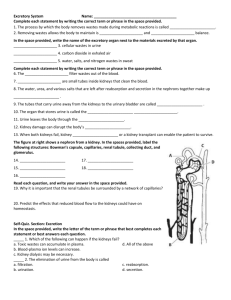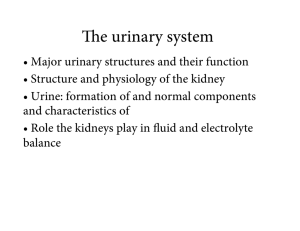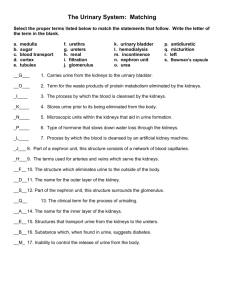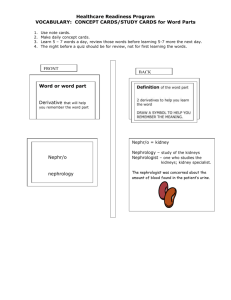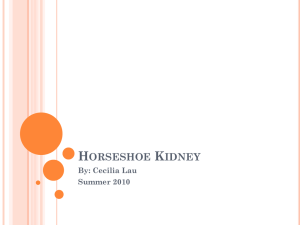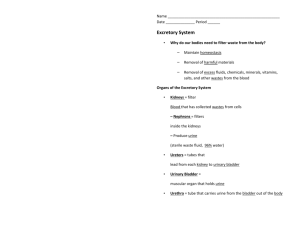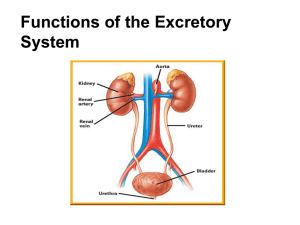Content Outline
advertisement
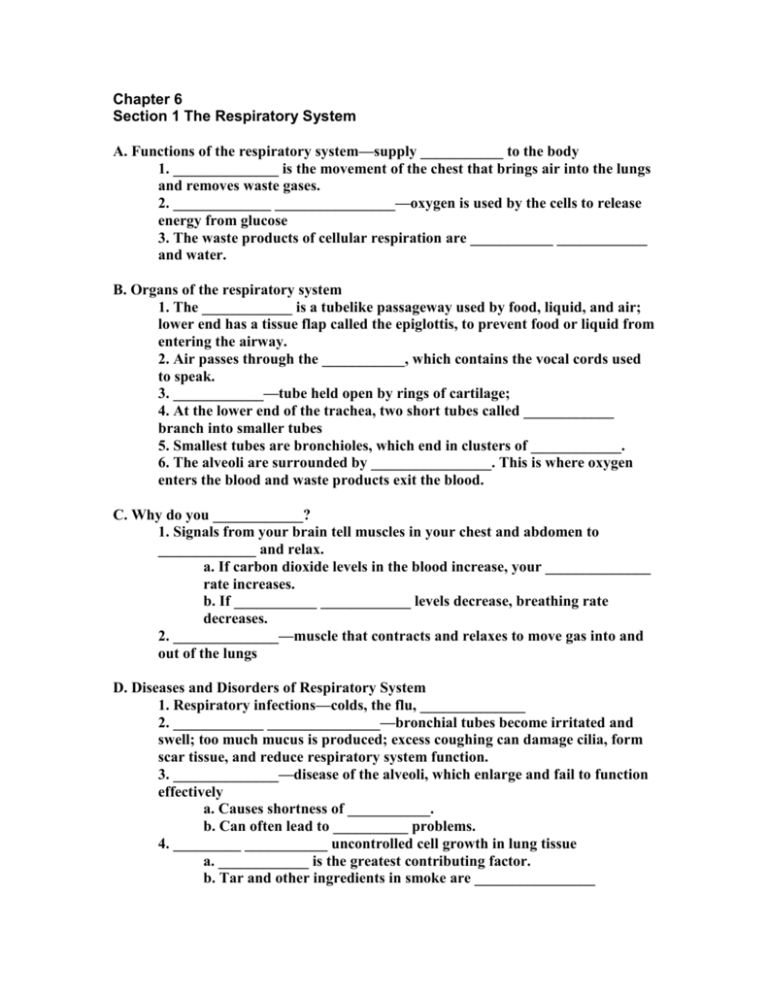
Chapter 6 Section 1 The Respiratory System A. Functions of the respiratory system—supply ___________ to the body 1. ______________ is the movement of the chest that brings air into the lungs and removes waste gases. 2. _____________ ________________—oxygen is used by the cells to release energy from glucose 3. The waste products of cellular respiration are ___________ ____________ and water. B. Organs of the respiratory system 1. The ____________ is a tubelike passageway used by food, liquid, and air; lower end has a tissue flap called the epiglottis, to prevent food or liquid from entering the airway. 2. Air passes through the ___________, which contains the vocal cords used to speak. 3. ____________—tube held open by rings of cartilage; 4. At the lower end of the trachea, two short tubes called ____________ branch into smaller tubes 5. Smallest tubes are bronchioles, which end in clusters of ____________. 6. The alveoli are surrounded by ________________. This is where oxygen enters the blood and waste products exit the blood. C. Why do you ____________? 1. Signals from your brain tell muscles in your chest and abdomen to _____________ and relax. a. If carbon dioxide levels in the blood increase, your ______________ rate increases. b. If ___________ ____________ levels decrease, breathing rate decreases. 2. ______________—muscle that contracts and relaxes to move gas into and out of the lungs D. Diseases and Disorders of Respiratory System 1. Respiratory infections—colds, the flu, ______________ 2. ____________ _______________—bronchial tubes become irritated and swell; too much mucus is produced; excess coughing can damage cilia, form scar tissue, and reduce respiratory system function. 3. ______________—disease of the alveoli, which enlarge and fail to function effectively a. Causes shortness of ___________. b. Can often lead to __________ problems. 4. _________ ___________ uncontrolled cell growth in lung tissue a. ____________ is the greatest contributing factor. b. Tar and other ingredients in smoke are ________________ 5. ___________—disorder in which bronchial tubes contract quickly, causing shortness of breath, wheezing, or coughing. Content Outline Section 2 The Excretory System A. Functions of the excretory system—remove body wastes through the ________, and through the _______________, circulatory, ______________, and urinary systems 1. Urinary system—gets rid of _________ wastes which accumulate in the ____________ and controls blood volume a. Controls blood volume by removing excess ____________ produced by the cells 2. The part of the brain called the __________________ regulates amount of water in blood a. If too much water, _____________ from the hypothalamus tell kidneys to increase amount of __________ and return less water to the blood. b. If too little water, hormones tell kidneys to _____________ amount of urine and return more water to the blood 3. Organs of the urinary system a. Two ________________ pass the blood through filtering units called _______________. i. Located on the back wall of the __________ at about waist high ii. Main function is to __________ the blood that contains waste collected from cells iii. In app. ___ minutes all of the blood in your body passes through the kidney b. Nephrons – _________ stage filtration system i. Blood moves from the ________ artery to the capillaries in the cuplike structure ii. First – ___________, sugar, salt, and wastes from the blood pass into the cuplike structure iii. Next liquid in the cuplike structure is squeezed into the __________ iv. Capillaries perform the second filtration- Most of the water, sugar and salts are ______________ and returned to the blood flow v. Collection capillaries merge to form a _________ Vein, and return purified blood to the _______________ system vi. Liquid, salts and other waste that is not reabsorbed becomes ___________ vii. An average sized person produces about ___ L of urine per day c. Urine drains from kidneys to the bladder through tubes called ______________. d. The _________________ passes urine out of the body. B. Other organs of excretion—liver produces a chemical called __________ which ends up in urine 1. ________________ from broken down cells become part of bile, which is the digestive fluid from the liver C. Urinary diseases and disorders 1. Infections often occur in the ________________ but then spread to the kidneys. 2. Ureters and urethra can become ____________, interrupting the flow of urine and damaging the kidneys. (kidney Stones) 3. _______________ can detect urinary tract disorders and other health problems. a. Change in urine _________ can suggest kidney or liver failure b. High levels of ____________ can be a sign of diabetes c. Increase amounts of the protein _______________ indicates Kidney disease or heart failure 4. Kidney failure a. A person with ___________ kidney can live normally. b. If both kidneys fail, the person might need a ____________ machine to filter blood. Discussion Question What happens if there is too much water in the blood?
